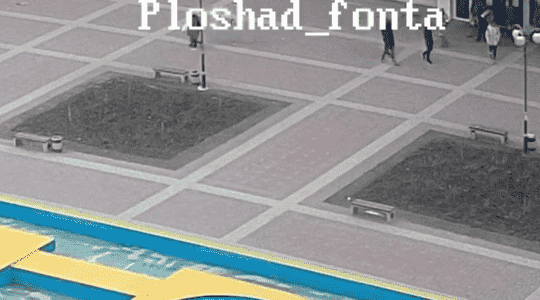The video circulated on social media. A man is dragged from a building, his head apparently covered, flanked by two armed soldiers – one on each side – who guide him. Six others follow a few meters away. This man would be Ivan Fedorov, the mayor of Melitopol, a Ukrainian city located between Mariupol and Kherson, in the south of the country. And the men carrying it, Russian soldiers.
A pure and hard kidnapping, accuses Volodymyr Zelensky, the Ukrainian president, because the city councilor of Melitopol “refused to cooperate with the enemy”. Ivan Fedorov was arrested on Friday March 11 while he was at the city’s crisis centre, where he was dealing with supply issues. He is charged with terrorism offenses by the prosecutor’s office of the separatist, Russian-backed Lugansk region. Melitopol, which had 150,000 inhabitants before the invasion, has been under the control of Russian troops since February 26.
“New attacks on democratic institutions”
Rebelote two days later, in Dniproroudne, located between Melitopol and Zaporijjia. “Today, March 13, at 8:30 a.m., the army of the Russian Federation captured the mayor of the city,” Yevgen Matveyev, the governor of the region wrote on Telegram. These kidnappings are “the sign of the weakness of the invader”, said Volodymyr Zelensky after the first of the two. On Saturday, the Ukrainian president had asked Emmanuel Macron and Olaf Scholz, the German chancellor, to help free the mayor of Melitopol. The EU strongly condemned these actions by the Russian army. “This is yet another attack on democratic institutions in Ukraine and an attempt to establish illegitimate alternative government structures in a sovereign country,” denounced on Twitter Josep Borrellthe head of EU diplomacy.
The second part of his statement seems to confirm the Russian objective underlying these abductions: to replace the local authorities who oppose the invasion with puppets of the Kremlin. After the arrest of the mayor of Melitopol, the regional administration appointed Galina Danilchenko, an opposition member of the city council, pro-Russian, as acting mayor. In a televised statement published by the local administration on Telegram, she assured that her “main task is to take all necessary measures to bring the city back to normal”. She also asked the population to “keep [son] composure” and “not to give in [aux] Provocation”.
“Put an intermediary, a firewall”
“This is the issue of governance, summarizes Vincent Tourret, research fellow at the Foundation for Strategic Research (FRS). Russia is seeking to dismember part of Ukraine to remove it from the authority of kyiv. It is a practice that it has already employed in the country in Donetsk and Lugansk, previously in Abkhazia and South Ossetia.To alleviate the cost of the occupation, it wants to place an intermediary, a firewall between its forces and the territory to be occupied. It thus gives the responsibility for securing the area to a local power, which may seem more legitimate.” François Heisbourg, special adviser for the same think tank and president of the International Institute for Strategic Studies (IISS), confirms: “It would even be illogical for Putin, in accordance with his long articles and speeches on Ukraine, not to affect institutions.
In his fantasy of a “Novorossia” (New Russia) extending from Transnistria – a separatist, pro-Russian Moldavian territory not recognized by the international community – to Russia, passing through southern Ukraine, Crimea and the Donbass, the Russian president relies on variants of recipes already used. In addition to the arrests of local authorities, already attributed to Russia in the Donbass in 2014, there is the possibility of organizing a “referendum”. Several Ukrainian officials, including the Minister of Foreign Affairs, accused the Russians last Saturday of undertaking such a maneuver in Kherson, a city near Crimea, one of the first which they seized. The invaders would like to create a “false people’s republic” there. “As in Crimea in 2014”, recalls François Heisbourg.
“Giving credibility to a Ukrainian secessionist will”
Through these practices, Russia wishes to “register the occupation for the long term, put pressure on the central authority and give credibility to a Ukrainian secessionist desire”, details Vincent Tourret. This is also materialized by a massive information campaign. In the southern city of Berdyansk, controlled by Russian forces, “the mayor’s representatives have been fired from their offices, the local radio broadcasts Soviet ballads and Russian pop songs”, report it Guardian. The whole “interspersed with excerpts from speeches by Vladimir Putin and new information on Ukraine being “liberated from the Nazis””.
Despite propaganda and enemy occupation, demonstrations took place in several towns in the south of the country. In Melitopol, a few hundred inhabitants gathered last weekend to stand up against the invasion and the kidnapping of their city councilor. Also in Kherson. This civil resistance was not anticipated by the Russians before the invasion. “The war will embody one of the bases of Ukrainian identity for the next few years”, notes Vincent Tourret. For François Heisbourg, these gatherings “are annoying for the information war, but it is secondary for Putin. The issue is whether or not he will be forced to renounce the complete occupation of Ukraine” .
